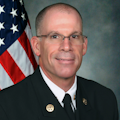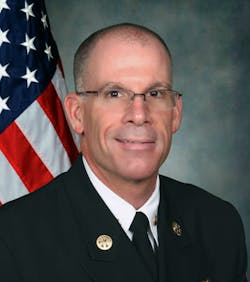When each of us joined this proud profession as a career or volunteer firefighter, we took an oath—an oath to serve and protect our community; to follow the policies and procedures of our respective organizations; to perform our assigned duties safely and effectively with the primary goal of preventing harm, suffering and the death of our sworn citizens and visitors; to stabilize and mitigate hazardous conditions; and to prevent the damage and loss of property without the expectation of reward.
A few weeks ago, while teaching a class to a group of firefighters (both paid and volunteer), I asked what they felt were some of the most pressing issues facing the fire service today. To no one’s surprise, one of the first topics brought forth was the issue of recruitment and retention within the volunteer fire service. An equally popular response on the paid side is low morale and lack of motivation amongst small groups within the rank and file.
Having traveled extensively throughout the country and interacted with firefighters from coast to coast, I had heard these two responses many times before. As the conversation continued, I posed a hypothetical question to the group. I asked, if all the fires were gone, if you never had an opportunity to respond to or fight another fire, would you be here today? Would you still choose to be a member of this organization? To the surprise of many, with unspoken pride and little to no hesitation, two gentlemen in the front row raised their hands, and said, “Yes!”
This simple, yet very meaningful response spoke volumes about the motivation and desires of these two individuals. They chose to become firefighters as a means to serve and to protect; their motivation was not based on the opportunity to bear witness to the destructive forces of fire nor the addiction of the adrenal rush that comes with an emergency response. Their motivation is selfless and focused on serving their citizens and their community. The question is, are they the many or the few?
While the idea of fires becoming extinct is a righteous goal, it’s also an unrealistic fantasyland; however, the hypothetical question poses an interesting question that I believe deserves our attention: What motivates you and those within your ranks?
As public servants, our existence is based on the needs of our citizens and the demands that they willfully or unintentionally create. We never know when the next call for service (fire or otherwise) will come. Our days are often filled with countless hours of training and preparation, periodic stints of downtime, and a multitude of other tasks and assignments. Most would agree that the DNA of a true, red-blooded firefighter is unique. We’re competitive, action-oriented, adrenal junkies. So what happens when our means of motivation (recruitment) and our existence (retention) are based solely on something outside of our control?
As leaders in the American fire service, the challenges of recruitment and retention within the volunteer ranks are growing increasingly difficult. The busy lifestyles of modern families, coupled with the financial challenges that many are faced with, demand longer work weeks, and the immediate access to social media and other forms of entertainment continue to lessen the social connection that was once the heart and soul of the volunteer fire service.
Within the paid ranks, a lack of fires or a bad run of low-priority medical calls always seems to affect a select group (5–10 percent, sometimes more) whose contagious attitudes and negativity eventually lead to a compromise in organizational morale.
While I will not claim to have the solution to either of these critical issues, I ask the question, what are you doing to help recruit and retain members within your department? What are you personally doing to motivate the members within your ranks, to promote positive morale and enthusiasm?
The templates that have long provided us with success in years past are no longer. What once created excitement and opportunity for one generation is no longer the chosen path for the next. Right or wrong, the fires and the chaotic events that we are charged with mitigating have long been an unintentional form of recruitment and retention. In their absence, what do you have?
While serving the public is our primary mission, the greater majority of our time is spent dealing with people, most of whom are our own. If we don’t make a conscious effort to focus on recruiting new members and retaining and motivating those within our ranks, the day will soon come when the most simplistic of services can no longer be provided.
About the Author

Timothy E. Sendelbach
Editor-in-Chief
Timothy E. Sendelbach is a 30-year student and educator of the fire and emergency services, and former editor-in-chief for Firehouse. He has served as an assistant fire chief with the North Las Vegas, NV, Fire Department, as the chief of training for Savannah (GA) Fire & Emergency Services and as assistant fire chief for Missouri City, TX, Fire & Rescue Services. He is a credentialed Chief Fire Officer and Chief Training Officer and has earned a master’s degree in leadership from Bellevue University, bachelor’s degrees in fire administration and arson and an associate’s degree in emergency medical care from Eastern Kentucky University.
